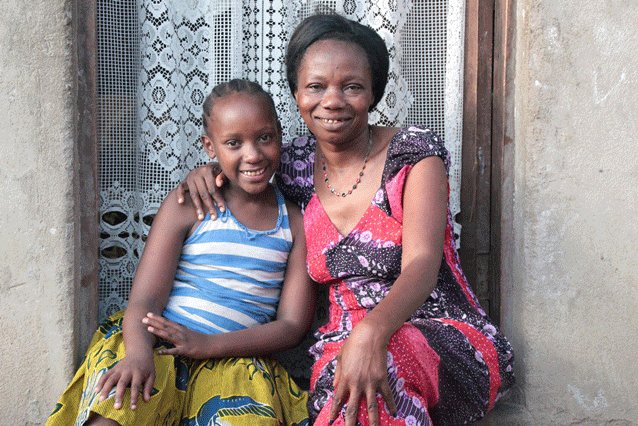Dr Louise Crossley was a scientific, academic and political pioneer; she was also an early and treasured supporter of The School of St Jude.
Her passing last year was profoundly felt by two of our most senior academic staff, who she both sponsored and inspired.
The first of those sponsorships was for now Secondary Headmaster Nestory Msoffe, who caught Louise’s eye back in 2006 when he was a Kiswahili teacher.
“We became very close. She was a very special person to me and my family,” Nestory said.
“To us, Louise was a gift from God and I will always remember her positive influence on my life.”
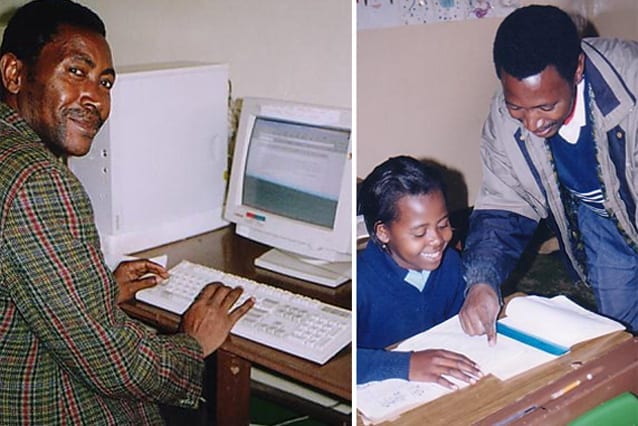
When Nestory took leave from teaching to pursue higher education, he said she continued her much-appreciated correspondence and support.
Nestory was the first St Jude’s individual to benefit from Louise’s generosity, after she was taken with our school and its mission more than a decade ago.
In our school’s infancy, Louise camped out on the lawns of our office with a group of study abroad students from America.
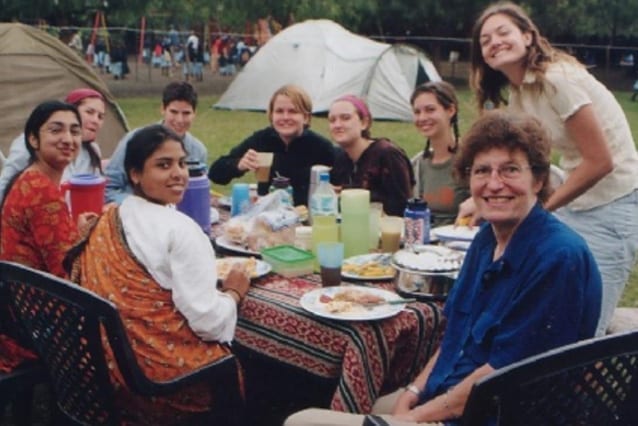
She was so encouraged by Nestory’s development that she began sponsoring then science teacher, Nzinyangwa Mcharo, in 2012. Louise had a keen eye for talent, as Mcharo has since been promoted to head of physics and assistant academic master.
“My sponsor was an exceptional woman, an outstanding leader with a passion for adventures and teamwork,” Mcharo said.
“I will always be motivated by her trust in me and support, her leadership qualities, readiness to learn, ways she approached challenges and the meaningful life she lived for others.”
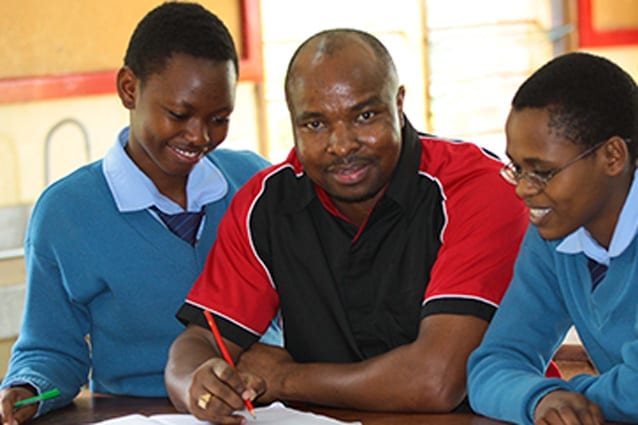
With her knack for scouting talent, it’s no surprise Louise was a professionally impressive person herself. Born in Johannesburg, she obtained a degree in science from Cambridge and in 1980 earned her doctorate from the University of New South Wales.
In 1991, she became the second woman ever to a lead a scientific station in the Antarctic and the very next year was appointed the first convener of the Greens Party in Tasmania.
It was on a trip to Antarctica in 2011 that she was diagnosed with cancer.
Her passing in September last year was mourned by students, colleagues, friends and family around the world, and tribute was paid to her in the Australian Senate.
In her will, Louise made provisions to continue supporting Mcharo in his professional development at St Jude’s. A further part of her generous, $10,000 bequest was set aside to support projects at St Jude’s that enhance science and information technology.
Join Dr Louise and St Jude’s in fighting poverty through education. Find out more by downloading our Wills and Bequests Information pack, or by making a donation.
Two years was all it took.
Before he was accepted into St Jude’s as a Form 5 student in 2013, most of Emmanuel’s education had been at a government school.
Once he graduated last year, that experience became a driving force in his decision to spend the second half of his Community Service Year helping share his high-quality education with other students in the Arusha community.
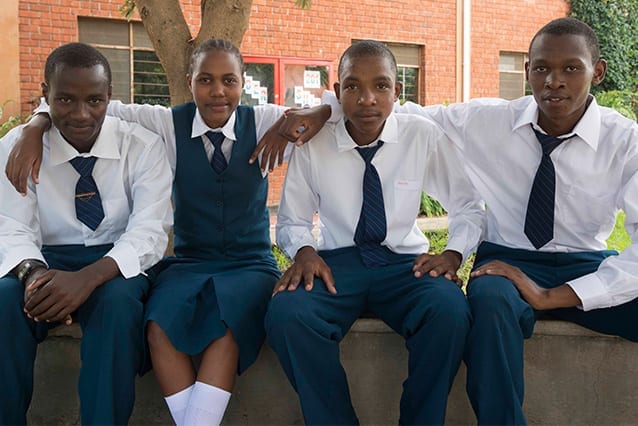
“I was feeling worried about it. As a student who had never even been to university, and going there as a teacher, it was a challenge. Now it motivates me and I feel like I can carry myself like other teachers,” Emmanuel said, nearing the end of his six-month teaching stint at Elerai Secondary School.
Emmanuel had initially chosen to work at St Jude’s boarding house for his CSY, but as the half-way mark neared he changed to volunteer at a government school.
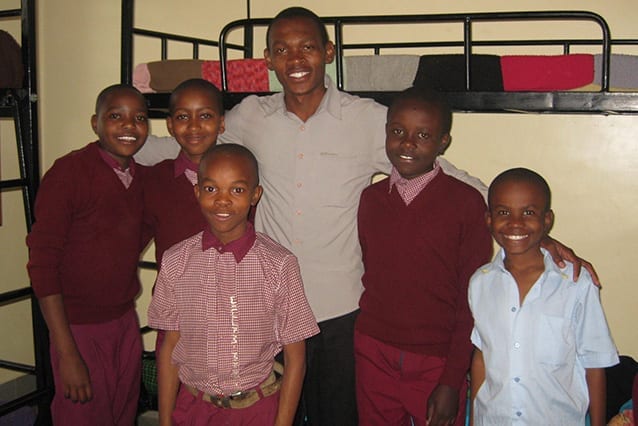
“There is a lot to do at government school because of the lack of teachers. So I am now helping students there, and they’re really enjoying having us (CSY teachers),” the 24-year-old Chemistry teacher said.
“I know how those students are, I know the government school environment, so I knew the techniques I would be able to use so that they would understand.
“I like Chemistry, and there was a shortage of teachers in Chemistry there. I am enjoying teaching very much, and I love those students. I can’t imagine the moment I’ll be going (for university), I think most of those students will cry.”
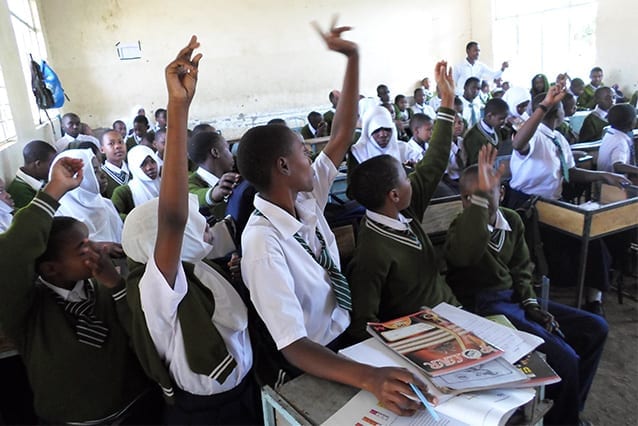
Emmanuel, who is awaiting news of his acceptance into an Agricultural Economics degree at Sokoine University of Agriculture in eastern Tanzania, wants to continue making a valuable impact in Tanzania as the industry “is the backbone of our economy”.
Until then, he explained that a lack of food, chalk and class facilities such as chairs has increased the challenge of teaching.
“The government has decided to provide free education at government schools, but it has not been very practical because they’re not able to provide the facilities,” Emmanuel said.
“The main problem is not being fed at school – they are there from 8am to 3.30pm without having food, so their concentration is a little bit slow. It’s a real challenge. We have to work extra hard so that we can help them understand what we are teaching.”
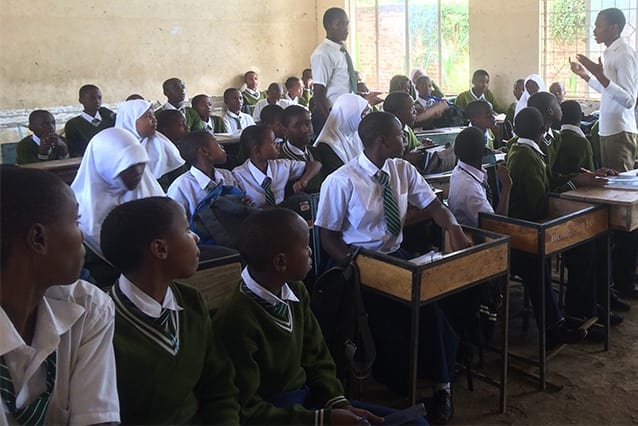
St Judes’ CSY program is being hailed by many local educators as a desperately-needed solution to Tanzania’s education issues.
“Our school has a big problem with a shortage of Science and Business teachers, so it was a miracle to have our four student teachers from St Jude’s,” Suye Secondary School principal, Sarah Milunga, said.
Four St Jude’s CSY students taught at Suye, the government school in Arusha City: Judica (Commerce and Bookkeeping, Forms 3 and 4); Lubango (Biology, Form 1); Lembris (B Maths, Form 2) and Eliud (Geography, Form 2).
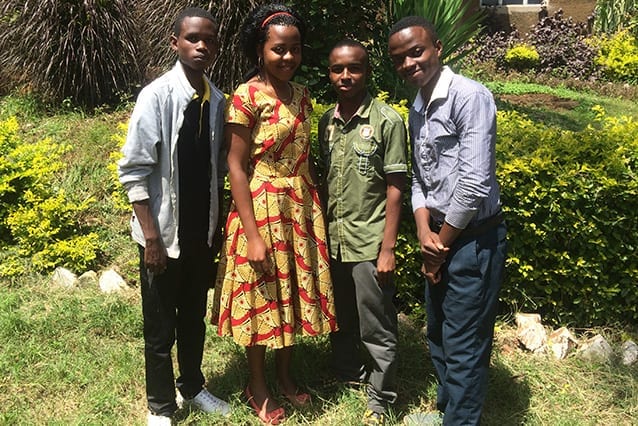
The institute is one of 21 government schools our CSY students have taught at, helping more than 10,000 students with their high-quality educations.
“This is a unique program in our country. These students have shown discipline and hard work in teaching, and all other activities in our school community. They were charming peacemakers who interacted with others easily, they were helpful and friendly to students, and effectively planted educational seeds to students through their positive attitudes, from morning to evening,” Sarah said.
“Thanks so much to all students who participated in this wonderful program with compassion. You came to our schools direct from Form 6, without Teachers College, but you did wonders and unforgettable activities in our schools.
“This program helped our school a lot. Thank you very much for introducing it to our generation in education. It is key in the development of Tanzania and a strong weapon in the fight against poverty.”
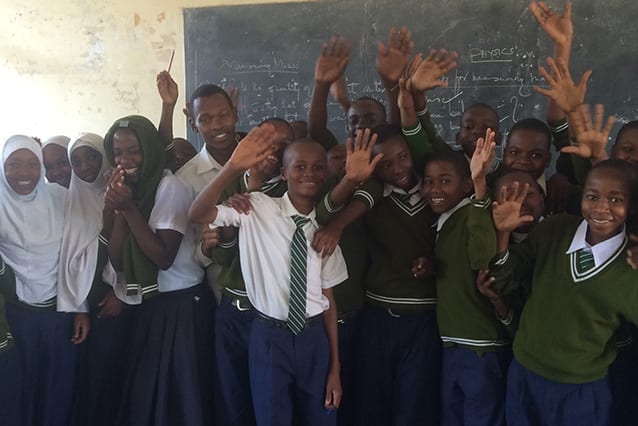
Be part of something special and donate to our Area of Greatest Need!
Friends and family of the late Dr June Canavan are ensuring her life and work remain a powerful inspiration both in her hometown and in one of the world’s poorest communities.
The much-loved sports physician and family doctor from Australia’s Sunshine Coast died in a plane crash in 2009 enroute to the Kokoda Track, where she was set to complete a fundraiser for The School of St Jude.
Following June’s passing, a foundation was established by her family, friends, former patients and colleagues to honour June’s legacy by supporting the causes dearest to her.
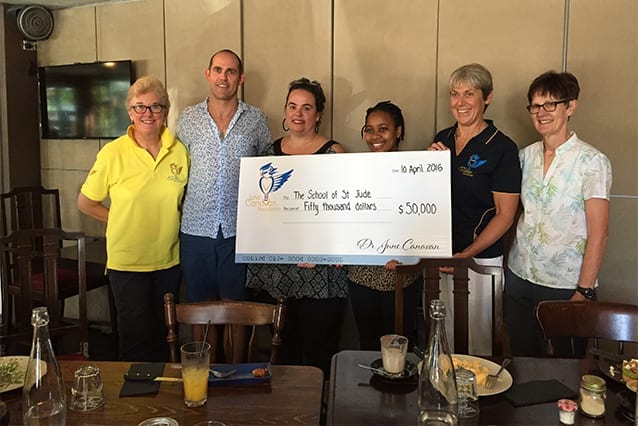
When St Jude’s ambassador and aspiring doctor Dorice met with the foundation last month, they recognized June’s giving heart and tenacious spirit in the young graduate.
The foundation gifted the custodianship of June’s stethoscope to Dorice, as recognition of what she had already achieved and encouragement for the challenges to come.
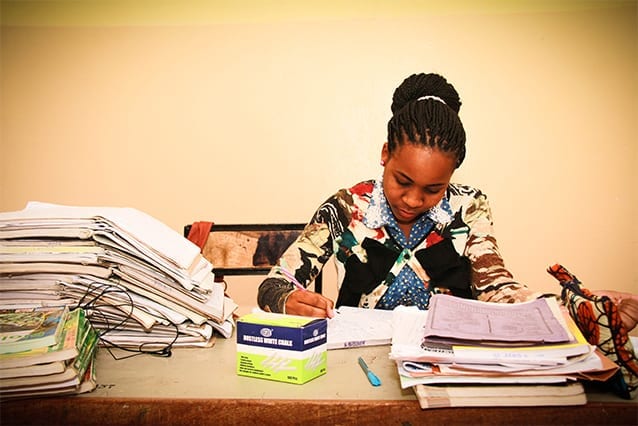
Dorice joined St Jude’s in 2009, after finishing in the top 10% of an under-resourced government primary school.
Just 2.4% of the 1.63 million Tanzanian students that enrolled in their first year of school with Dorice completed their secondary schooling.
Dorice met the foundation’s members while thanking supporters in Australia with St Jude’s founder Gemma Sisia.
“I learned that June was the most caring of women with so much energy and love for her community,” Dorice said.
“I hope that when I finish my studies and become a doctor, and start helping my people, I can deserve this gift. I know it will inspire me in my studies and I will think of her example all the time.”
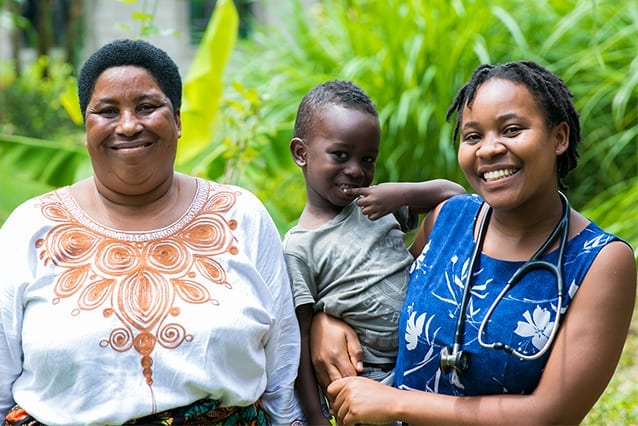
Dorice told the foundation that when she completes her medical degree she wants to specialise in gynecology.
Tanzania has one of the lowest rates of doctors per capita in the world, at three doctors per 100,000 people. The country has 96 registered gynecologists to serve approximately 20 million women.
Nobody has to tell the students at St Jude’s to eat their spinach.
Four times a week, the bowls are licked clean and the smiling faces of more than 1800 students are speckled with flecks of green. It’s spinach day!
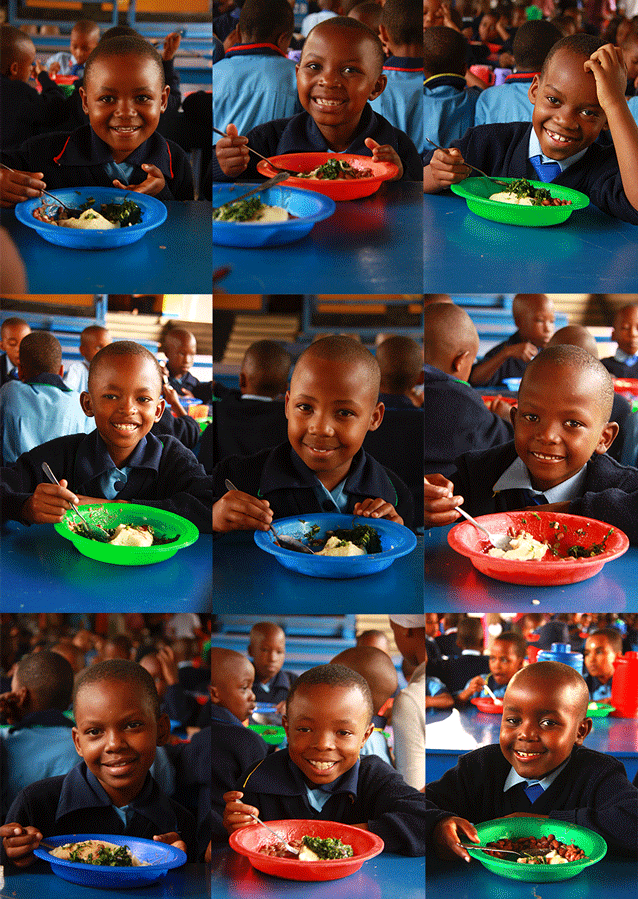
The benefits of these nutritious meals are being felt far beyond our school gates.
Vegetable farmer Nice Fadhili is just one of the local producers whose life has changed because of the more than $10,000 AUD spent each week on the more than 31,000 meals our students eat.
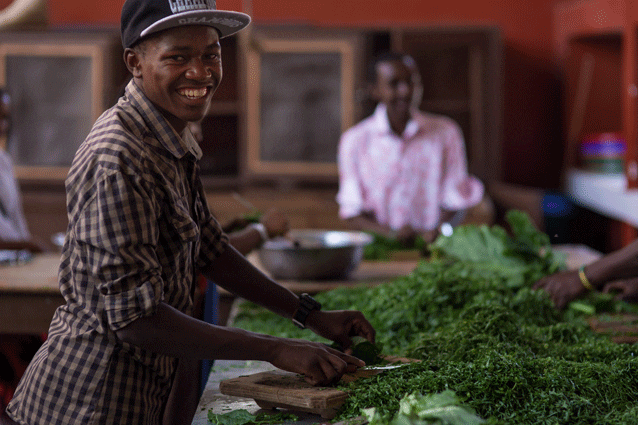
Known around St Jude’s as “The Spinach Lady”, Nice started supplying the school with leafy greens in 2012.
“I was selling some small vegetables at the central market and people from St Jude’s came looking to buy food for the children,” Nice says. “Even though I was small they saw my spinach was the best and started to buy from me. I was so happy.”
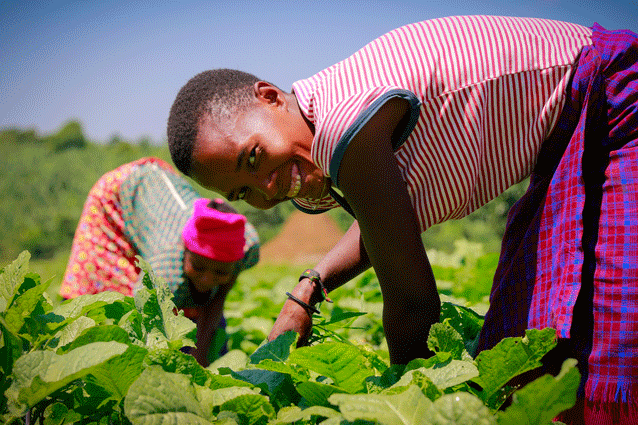
Tanzania has one of the highest rates of chronic malnutrition in the world; 42% of children under five are malnourished, which leaves them open to disease and learning difficulties later in life. Vitamin A and Iodine are the direst deficiencies, with iron deficiency another major concern.
Nutrient-rich spinach, served with beans and rice for lunch, is an affordable and delicious cure-all for these specific dietary deficits.
Nice is proud of her produce, the fact it feeds so many children and the ability it gives her to employ her elder sister, Waidae, on the shamba (farm).
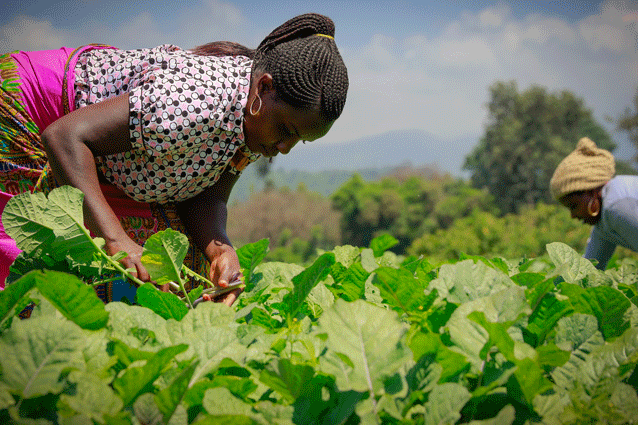
Before supplying the school, Nice and her husband John were living in a one-room mud house in Moivaro, sheltering and providing for four members of their extended family as well as their three children. Nice grew her vegetables in a small rented plot on the other side of Arusha.
In the future the Fadhilis hope to grow the shamba for their eldest son, Freddy, to inherit; they want to finish building their house which has been many years in the making and they want to see daughter Alice graduate and become a teacher.
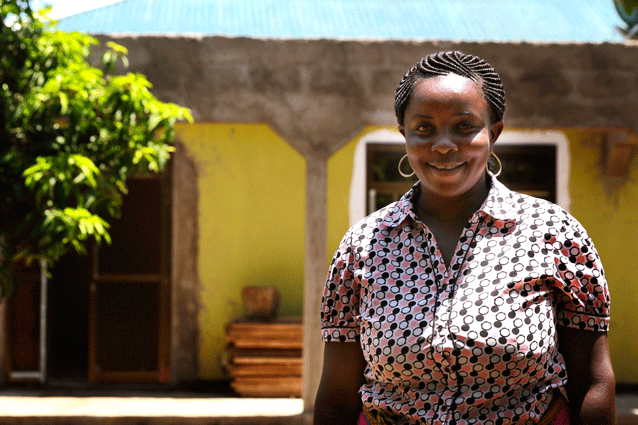
Nice said that she gives thanks for the school and prays for its students each night.
“I am happy because St Jude is able to support many children and I am able to give a better future to my children because of the school,” Nice said.
Eunice Mtili was born to teach.
“When I was very young, whenever I would share or explain something, I would give examples and demonstrate, moving my hands, everyone would say, you would make a very good teacher,” Eunice said.
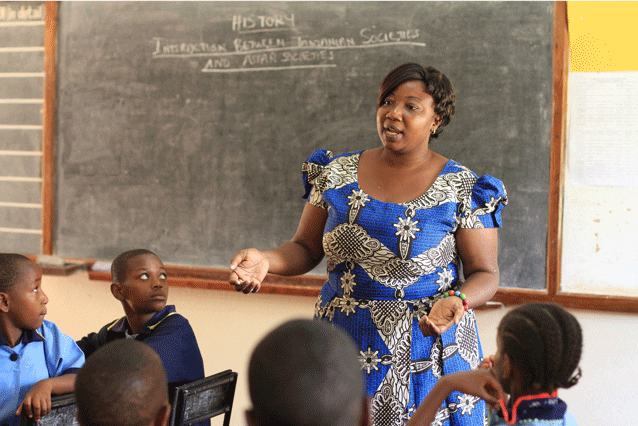
Through the course of a 21-year teaching career, Mrs Mtili has proven everyone right, channeling her natural talent into educating thoughtful and resilient students who love to learn.
“I am really sharp, I know I am very fast, and I want everyone to be fast in my classes, I want smart, cheery, quick, happy people,” she said.
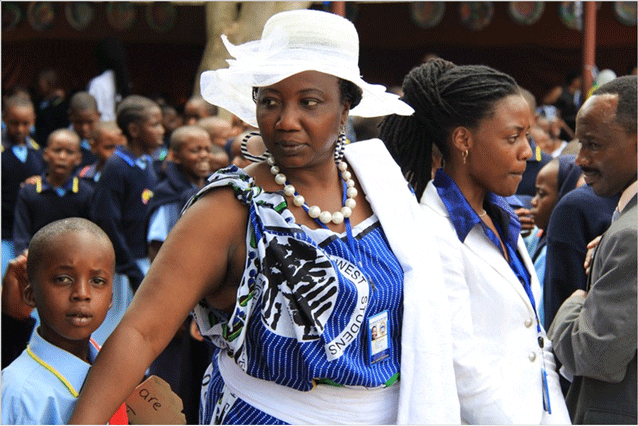
This is an ambitious goal in Tanzania where the government school system is overcrowded and under-resourced. The World Bank reports 23% of government school teachers don’t show up for work on a given day (2012).
St Jude’s offers Eunice the resources and support to be the best teacher she can be.
Since arriving in 2011, Eunice has taken full advantage of the small class sizes and extended curriculum which lends itself to vibrant demonstrations and opportunities to “learn by doing”.
She currently teaches social studies at our primary campus.
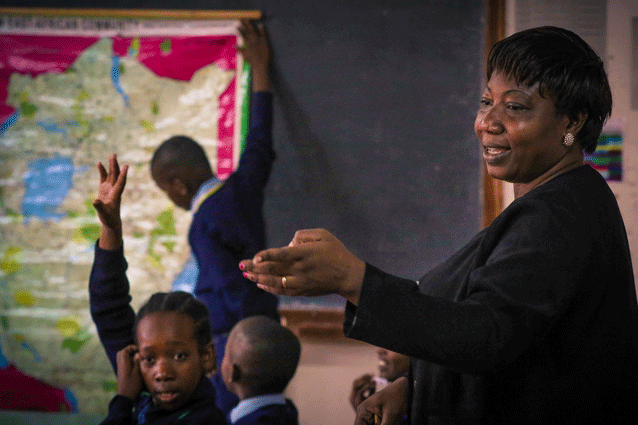
“The first thing I do to introduce social studies is explain to students why I am teaching them these things, social studies is ultimately preparing them to become good leaders.”
“So in geography, I say, how will you become a leader if you don’t know your area, its resources and geographical features?
“In civics, as we expect leaders to conduct development, I say, 'how would you use the features and natural resources of your areas for development?'. We also role play elections and speeches."
“In history, we learn about independence and why we are living like this. So I show them examples of good leaders and the ones who failed.”
Eunice is helping St Jude’s create good leaders and, after five years, she is starting to see the fruits of her labour.
“I have many students at St Jude’s who come back to me and tell me how much they appreciate, and how often they think of my classes; they say they were really unique,” she said.
“The ones who are in Form 2, they are all in leadership positions now!”
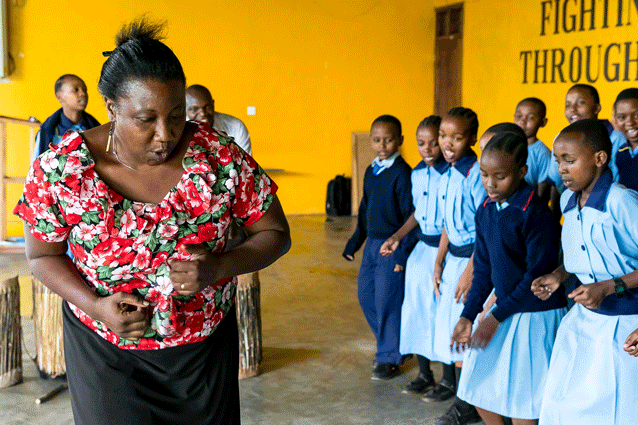
St Jude’s is also helping Eunice grow her own leadership and teaching skills.
The magnificent Mrs Mtili was recently selected by a panel of her peers to participate in a professional development partnership in the United States.
Later this year, she will engage in educational workshops, mentoring and training with teachers from Louisville Collegiate, which has a long running relationship with St Jude's.
Eunice says she is hoping to come back from the States as the best teacher she can possibly be.
“With new skills, new knowledge and better understanding of how children learn, so that I can teach best.”
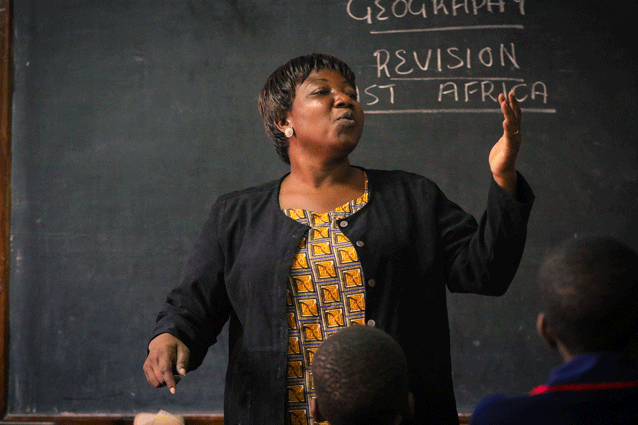
Glory heard it on the radio, the opportunity that would help her family escape poverty forever.
Despite battling recurrent bouts of malaria and tuberculosis, the unemployed single mother did everything she could to get her daughter Noreen to The School of St Jude, which was offering free scholarships for a high-quality education.
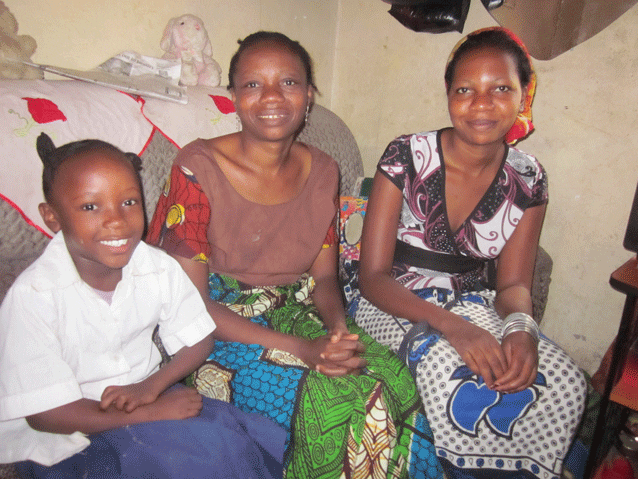
“I was very sick, but it was testing day, so I got up before the sun, dressed Noreen and started asking everyone, where is St Jude, because I didn’t know,” Glory said.
“We walked all day and when we got there Noreen went in the line and I just fell down on the grass and slept all morning and afternoon.”
Noreen had been top of her class in her government school and passed the academic testing with flying colours.
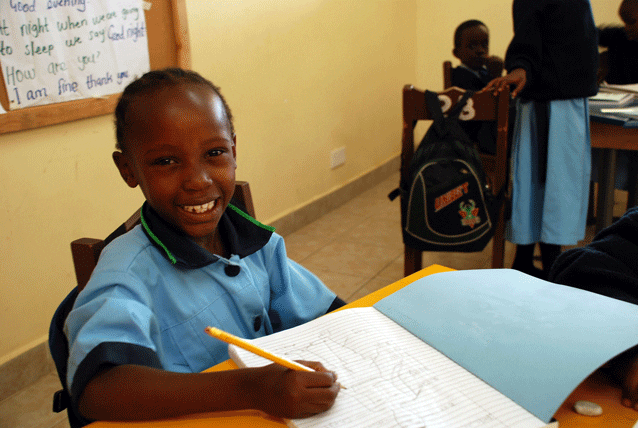
As the family had no reliable income, were living in one room and sleeping four to a bed; they qualified under the school’s stringent poverty requirements.
“I was so happy when she got in, I was crying and laughing and I really say that my health was better after I got that news,” Glory said.
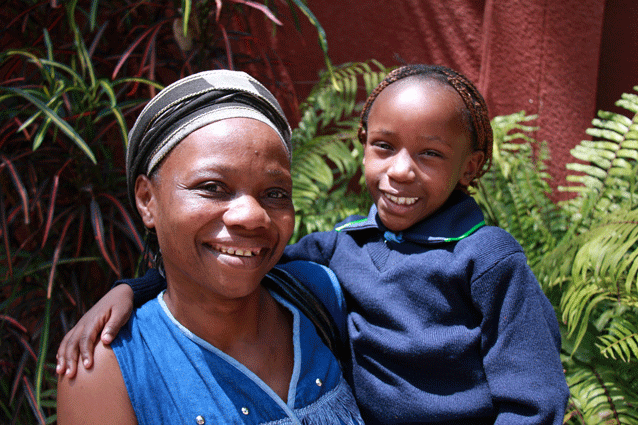
Noreen is now in Grade 6 and excelling. She is the self-proclaimed best singer in upper primary as well as an enthusiastic participant in the traditional dance club and debating.
Last year, Noreen brought home two big prizes; one for being a stand out performer in the debating competition and the other for always singing the national anthem with gusto.
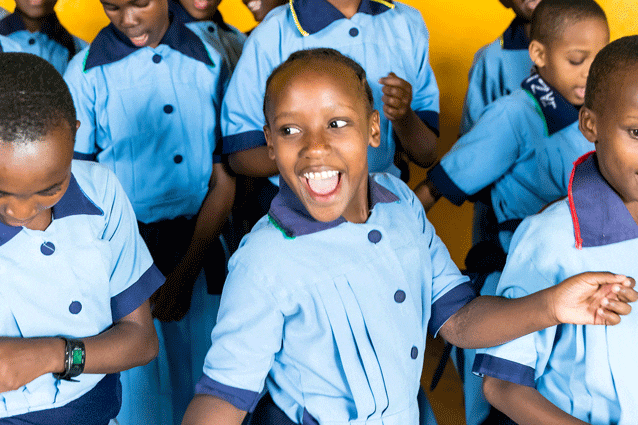
Now that Noreen is in upper primary she boards during the week at our Moivaro campus.
Boarding at St Jude’s provides Noreen with a range of educational, nutritional and welfare benefits including her own bed, breakfast and dinner, electricity and running water and homework support from boarding parents.
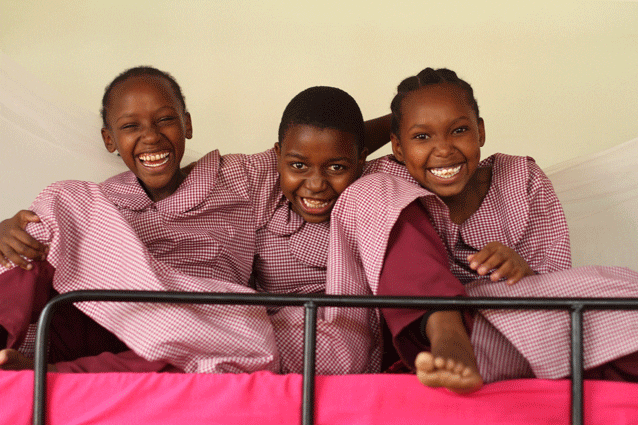
Every Friday afternoon, she takes one of our big yellow buses home to Sakina where Glory is waiting, eager to hear about what she has learned that week.
Glory says that she is happy when Noreen is home and is so proud that her young daughter is able to tutor the other, older children in the neighbourhood. She can’t wait to see her graduate.
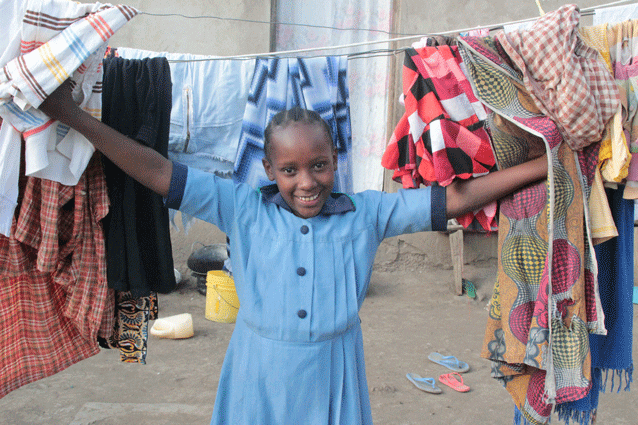
Noreen is not sure what she will do after school - with her brilliant mind, loving mum and some help from St Jude’s, not even the sky is the limit.
“Probably, I will be a doctor and a businesswoman, I want to be a politician and astronaut but I know it is hard and also a photographer, just for some of the time,” she said.
